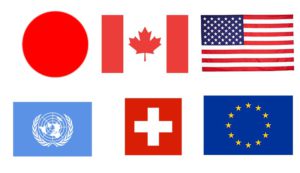Technical and financial partners call on Burundi government and foreign NGOs recently suspended to hold a dialogue aimed at clarifying the law governing NGOs operating in Burundi. They appreciate that some NGOs have resumed activities although most of them are still suspended.

Technical and financial partners call on Burundi government and NGOs to engage in a dialogue that would lead to the resumption of activities.
In a joint communiqué issued on 17 October by technical partners namely Japan, Canada, USA, the UN, Switzerland and the EU, they appreciate the approach undertaken by different NGOs to obtain additional clarifications on some aspects of the 2017 law governing their functioning, what would allow them to work in accordance with the Burundian and the international laws as well as the administrative and financial requirements, reads the statement.
Those partners underline the importance of those NGOs in the improvement of the living conditions of Burundians. “There are long-term initiatives executed in cooperation with the government such as fighting against malaria, HIV and malnutrition as well as supporting the voluntary repatriation of Burundian refugees…,” reads the communiqué.
They also remind that the beneficiaries are vulnerable people: “Their assistance goes through those NGOs which the government allowed to work and their suspension has harmful consequences on Burundians and the economy of the country”. Those partners pledge their support and continue accompanying Burundi and its citizens in sustainable development.
On 2 October, the Minister of Home Affairs met foreign NGOs. The objective of the meeting was to shed light on the decision that was taken by the National Security Council to suspend them for three months. Those NGOs were asked to submit four documents to have permission to work in the country.
The documents include cooperation agreement signed with the Foreign Affairs Ministry, a protocol on the implementation of the law governing NGOs in accordance with the National Development Plan, an agreement to respect the banking regulation in force in Burundi regarding foreign exchange as well as a progressive plan to correct constitutional imbalance.



















 IWACU Open Data
IWACU Open Data

